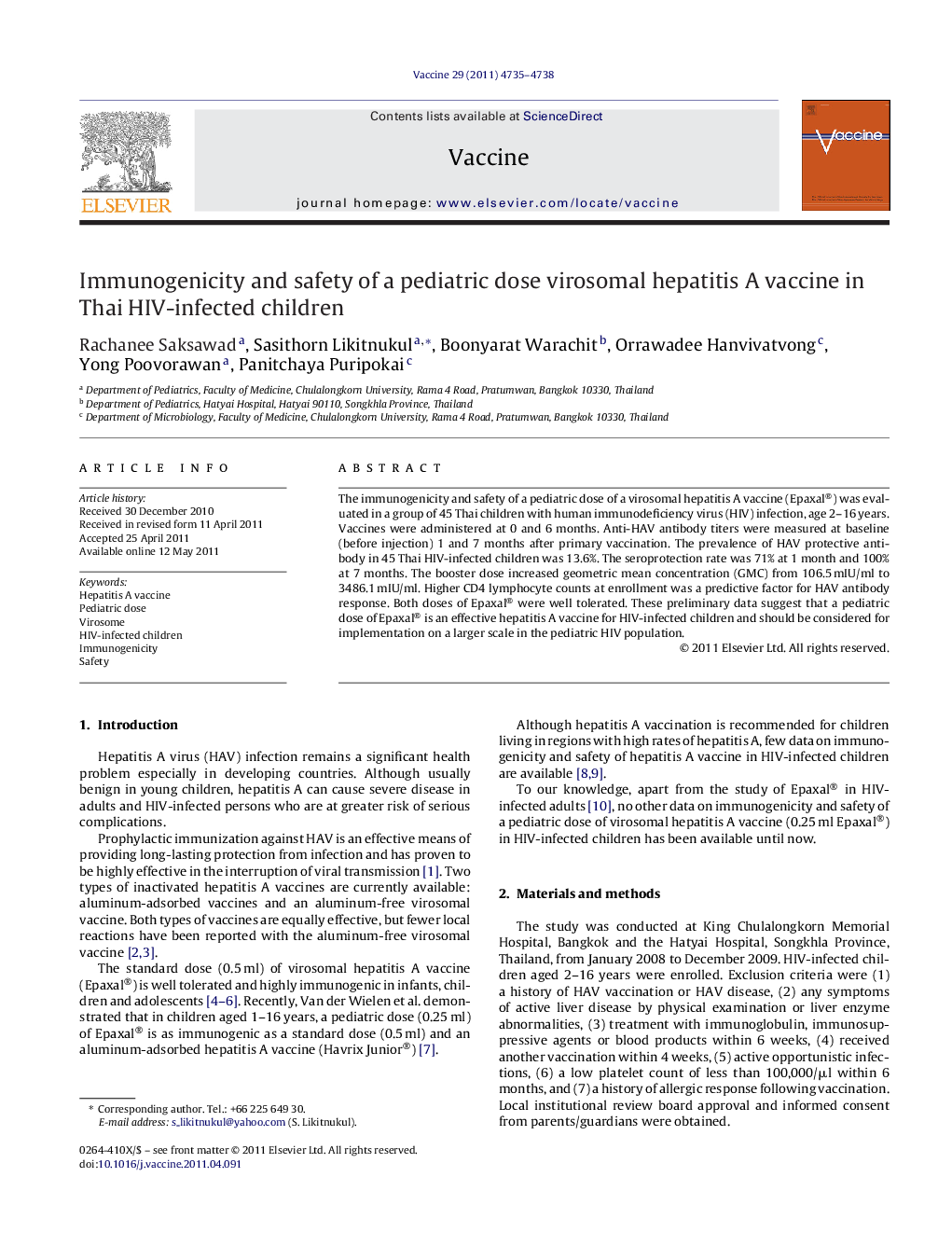| Article ID | Journal | Published Year | Pages | File Type |
|---|---|---|---|---|
| 8486804 | Vaccine | 2011 | 4 Pages |
Abstract
The immunogenicity and safety of a pediatric dose of a virosomal hepatitis A vaccine (Epaxal®) was evaluated in a group of 45 Thai children with human immunodeficiency virus (HIV) infection, age 2-16 years. Vaccines were administered at 0 and 6 months. Anti-HAV antibody titers were measured at baseline (before injection) 1 and 7 months after primary vaccination. The prevalence of HAV protective antibody in 45 Thai HIV-infected children was 13.6%. The seroprotection rate was 71% at 1 month and 100% at 7 months. The booster dose increased geometric mean concentration (GMC) from 106.5Â mIU/ml to 3486.1Â mIU/ml. Higher CD4 lymphocyte counts at enrollment was a predictive factor for HAV antibody response. Both doses of Epaxal® were well tolerated. These preliminary data suggest that a pediatric dose of Epaxal® is an effective hepatitis A vaccine for HIV-infected children and should be considered for implementation on a larger scale in the pediatric HIV population.
Related Topics
Life Sciences
Immunology and Microbiology
Immunology
Authors
Rachanee Saksawad, Sasithorn Likitnukul, Boonyarat Warachit, Orrawadee Hanvivatvong, Yong Poovorawan, Panitchaya Puripokai,
